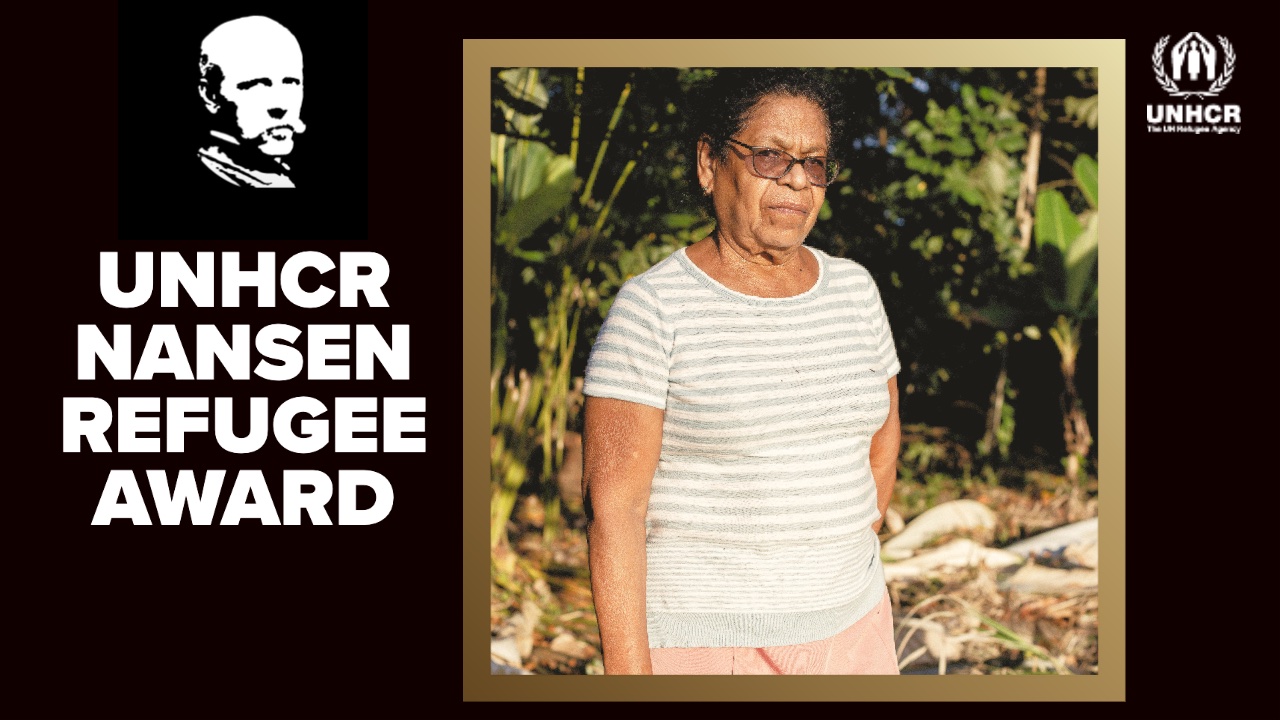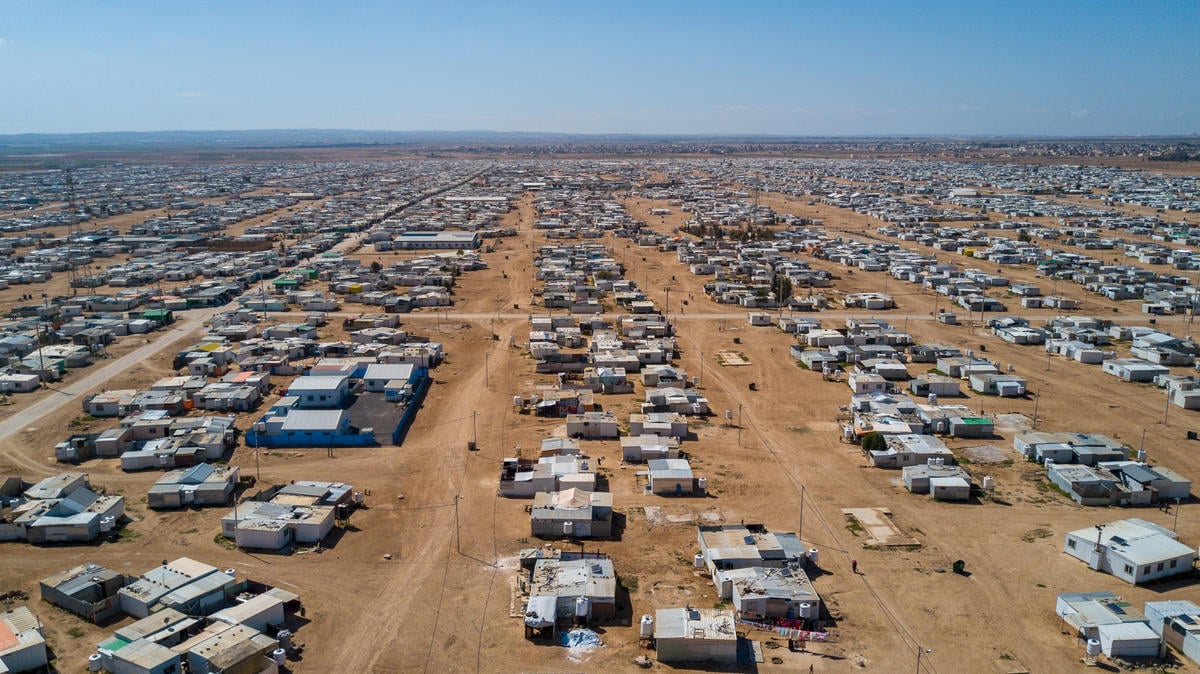Weaving themselves back into the Afghan social fabric
Weaving themselves back into the Afghan social fabric

QALINBAFAN, Afghanistan, January 2 (UNHCR) - There's an old saying in Central Asia: "Water is a Turkmen's life, a horse is his wings, and a carpet is his soul."
Historically a nomadic, desert-dwelling people, the ethnic Turkmen of Afghanistan may be accustomed to moving in search of water. But war forced them to flee their homes nearly 30 years ago, and they are now struggling to weave themselves back into the Afghan social fabric.
Nowhere is this clearer than in the carpet weaving village of Qalinbafan outside Mazar-e-Sharif in northern Afghanistan. This government land allocation site is home to 85 Turkmen families who used to live in Pakistan as refugees. They returned to Afghanistan in recent years, but find it hard to cope back home. Many of the families here weave carpets that are sold to traders in Pakistan.
In Turkmen tradition, the women weave while the men make the loom frames. Naseema was 13 when she learned to weave from her mother. Now 70 and a grandmother of four, her face is lined like old leather and her brittle bones jut out from under her loose Turkmen dress. But she is still weaving carpets, hunched over a wooden loom that occupies half of her two-room UNHCR shelter at Qalinbafan.
"We were in Pakistan for 10 years. I was very comfortable there. Everything was cheap and we were paid well for the carpets. I don't know why we came back," she says bluntly. "This carpet will take me two months. It can sell for $10 but I'll keep it for myself. Winter is here and I have nothing."
Her neighbours are more ambitious. They've erected a long tent in the compound to accommodate a massive loom. The carpet they are working on will take three people three months to complete. It can earn them $200 and sell for over $1,000 in the West.
Perched on the far side of the loom and hidden under her burqa, Fatma's henna-stained fingers work with quiet precision and confidence. At 50, she's been weaving for 40 years and is teaching her granddaughters to follow suit.
"Our traditions have changed over the years," says an Afghan elder at Qalinbafan. "Before, we used to make the girls start weaving as young as seven. Now they can go to school till they're about 15, then start to weave."
The importance of girls' education was one of the lessons learned in exile. In the Afghan refugee villages of Pakistan, UNHCR funds primary schools for boys and girls, often giving the latter their only chance to learn how to read and write. Upon their return to Afghanistan, the availability and quality of education vary. Fatma's grandchildren are lucky to have a school at Qalinbafan, but many other young returnees either attend classes outdoors or not at all.
Repatriation has also affected livelihoods. "The carpet business is not doing well," says Abdul Manam, an elder who returned from Jalozai refugee village in Pakistan last year. "We were paid $60 per metre in Pakistan, but now we're paid $40 because of the weak rupee."
Commercial interests are slowly changing the culture. "In Pakistan, carpet weaving was our main source of income," says Abdul Manam. "In Afghanistan, manual labour pays better, so the men focus more on working outside - in the factories and brick kilns."
Fatma's son Sharif remembers the good life back in Pakistan, where his wife weaved and he worked in a brick kiln, making enough money to rent a five-room house with a nice yard in Jalozai. "Life is difficult in Afghanistan," he says. "It's hard to find jobs or food. I make bricks from dawn to dusk. I can produce 10,000 bricks in 10 days for about 3,800 Afghanis ($76). But what happens after that? There is no regular work."
With these challenges in mind, some of his relatives have chosen to stay behind in Jalozai on the request of the Pakistani authorities. "They have been asked to help set up a carpet village near Peshawar. The Pakistan government promised to give them documents so they could stay. Land, electricity, water will also be provided," says elder Abdul Manam. "Personally I'm not interested, but I heard of some families that have gone to join their relatives there."
The Turkmen community's unique skills mean that they are in demand on both sides of the border. Some are lured by the opportunities in Pakistan while others just want to put their refugee lives behind them.
"I really hope peace will come to Afghanistan and that things improve here so that we can stay," says Sharif.
In the next room, his children weave after school, their fingers dancing between the weft and warp pulled tightly across the loom. It's clear that home is where the heart - and art - is. One can only hope that Sharif and the five million Afghan returnees before him can one day succeed in weaving themselves back into the rich and complex tapestry of their homeland.
By Vivian Tan in Qalinbafan, Afghanistan








